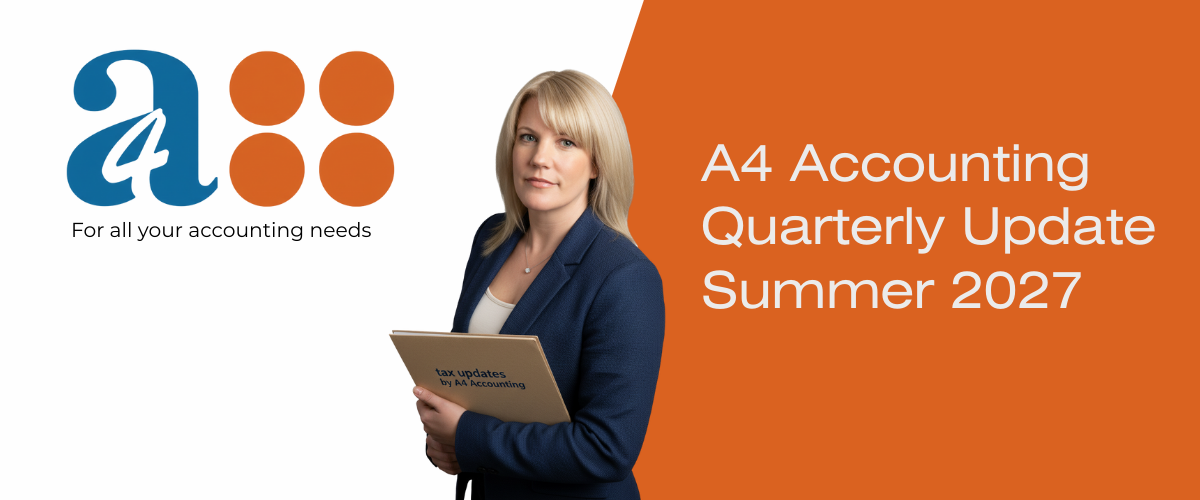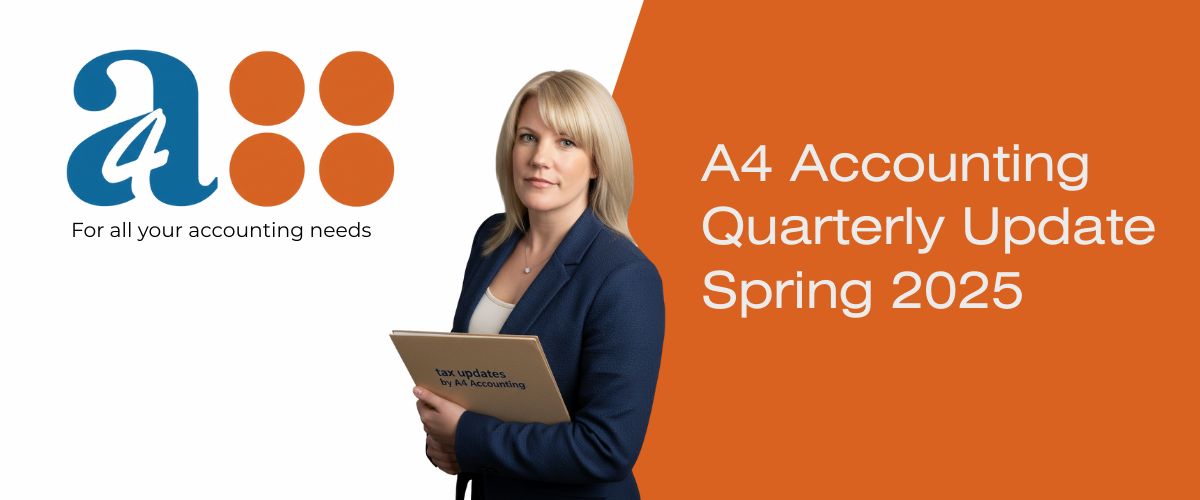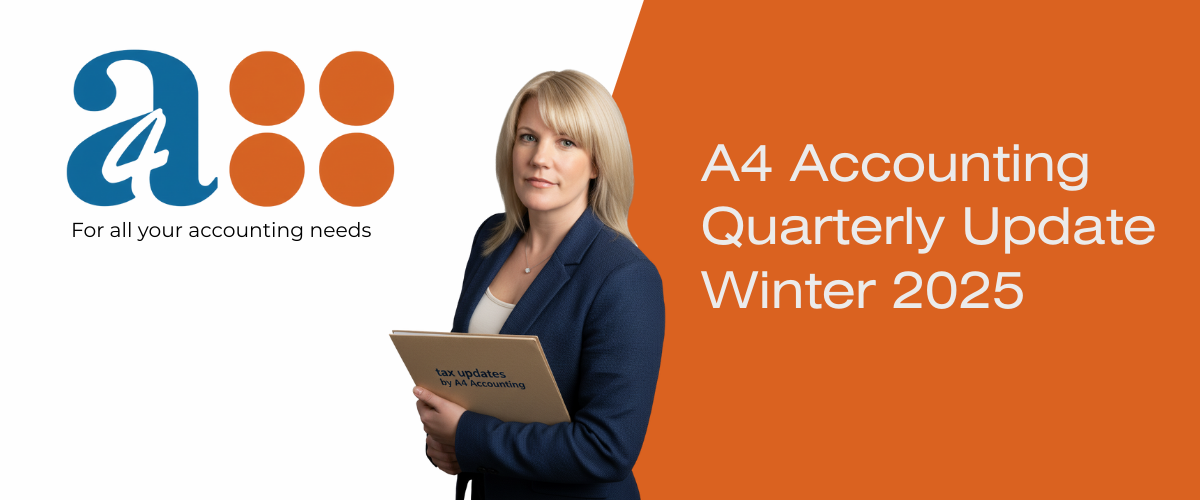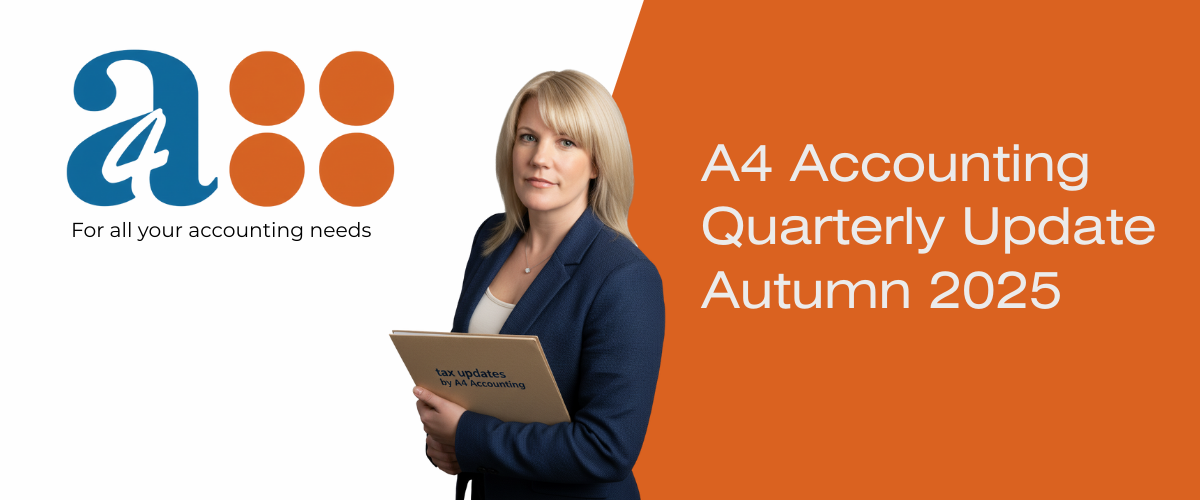
Accounting News – Winter 2024

Accounting News – Summer 2025
Accounting News – Spring 2025
Key Tax & Accounting Changes from April 2025: What Your Business Needs to Know
As we move into 2025, there are several tax and accounting rules that have changed or are changing from April 2025. Having your bookkeeping sharp and management accounts up-to-date means you’ll be more in control and less likely to get caught out. Here’s a breakdown of what you should be aware of, and how running monthly management accounts helps you adapt.
What’s New or Changing from April 2025
- Corporation Tax Rates & Marginal Relief
The main rate of Corporation Tax remains at 25% for companies with profits over £250,000. For small profits (under £50,000), the rate stays at 19%, and there is marginal relief for profits between £50,000–£250,000. GOV.UK
What this means for you: If your profits are near those thresholds, it’s vital to track profit trends during the year (via your management accounts) so you can forecast your tax liability and avoid surprises at year-end. - Employer National Insurance Contributions (NIC) Increase & Threshold Changes
From 6 April 2025, employer NIC is increasing. At the same time, the secondary threshold (the point above which employer NIC kicks in) is reduced to £5,000 per year. Additionally, Employment Allowance is increasing to £10,500, and the previous threshold (which limited which employers could claim it) has been removed. EY
For your business: If you employ staff, your payroll costs will increase, unless you’re offset by the larger Employment Allowance. Bookkeeping that captures accurate payroll and NIC figures monthly means you can see the effect, adjust cashflow plans, and ensure you are setting aside enough funds. - Capital Gains Tax (CGT) and Other Tax Changes
The Spring Statement 2025 introduced changes to CGT rates for various types of disposals/disposals of assets. For example, for disposals on or after 6 April 2025, the rate for some types of gains (not residential property) increases. KPMG
If you rent property, own investment assets, or occasionally sell business assets, you’ll want to review whether disposing before/after 6 April affects your tax, and ensure your accounts are correctly prepared to show gain/loss and allowable deductions. - Stricter Penalties for Late Tax Payment & VAT & Self-Assessment
From 6 April 2025, HMRC is increasing penalties and interest for late payment of taxes. The rate of interest on overdue tax will increase by 1.5%, making it more expensive to delay payments. TaxScape
For you: Having accurate bookkeeping and forecasting helps you avoid becoming subject to late payment interest. Monthly or quarterly management accounts give you the visibility to ensure enough cash is available when tax bills fall due.
How Bookkeeping & Monthly Management Accounts Support You
- Forecasting & Budgeting: If you have your management accounts monthly, you’ll see profit, loss, cash flow, and upcoming liabilities. That lets you plan for higher NIC, corporation tax, or CGT, rather than being surprised at year-end.
- Tax Planning for Rental Properties: Keeping property income, expenses, maintenance, and repairs tracked monthly ensures you claim all allowable costs and can see when you will owe tax on rental profits.
- Avoiding Cashflow Problems: Knowing ahead when the tax bills fall (corporation tax, employer NIC etc.) means you can ensure reserves or plan funding rather than borrowing at short notice.
- Accuracy & Compliance: Clean, well-organised bookkeeping reduces risk of errors. When preparing your year-end tax accounts, the time spent in earlier months pays off.
Recent News Item to Note
- Business Rates Reform Proposals & “Cliff Edges”: The government has published an Interim Report on transforming business rates, including measures like making rates fairer, smoothing out sudden jumps (“cliff edges”) for businesses expanding into second premises, and permanently lower rates for certain retail, hospitality and leisure properties with rateable values under £500,000 starting in April 2026. GOV.UK
Why it matters: If you have premises (shop, café, pub etc.), or are considering expanding into a second location, your business rates liability could change significantly. Being precise with your bookkeeping (especially premises expenses and rateable values) helps you assess the impact.
What You Should Do Now
| Action | Purpose |
|---|---|
| Review your profit levels | To see whether you fall into marginal relief, small profits rate, or the main rate of corp tax. |
| Update payroll and NIC projections | So staff costs (employer NIC) and allowances are budgeted correctly. |
| Ensure property income & expense records are clean | For rental properties, to avoid missing allowable deductions for tax. |
| Set aside funds monthly or quarterly | To cover upcoming tax liabilities (corporation tax, CGT, NIC). |
If you’d like help reviewing how these changes affect your business, A4 Accounting can prepare monthly management accounts for you, forecast your corporation tax and NIC costs, and help ensure your bookkeeping is ready for the year-end tax accounts. Contact us, and we’ll set up a plan.



